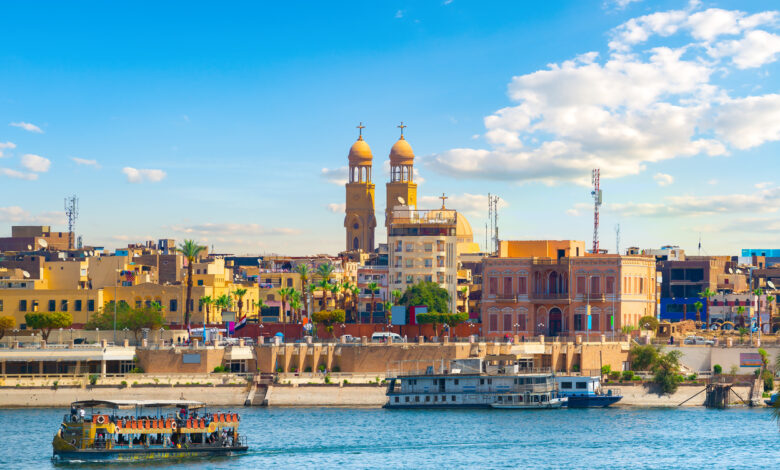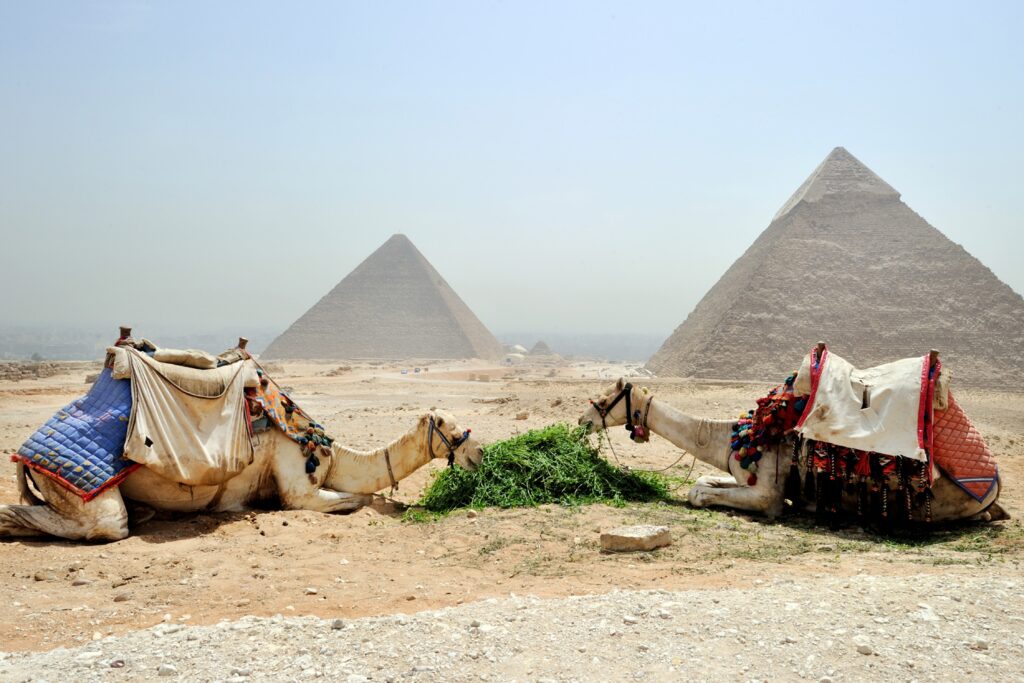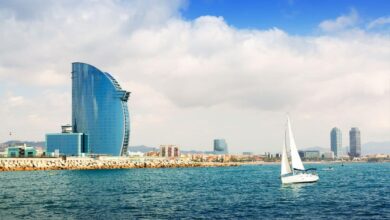Is Egypt safe to visit now? Travel advice 2025

Egypt is a place that every traveler must visit at least once in their life. But should you travel to this ancient country during the conflict in Israel?
Overall, Egypt is a safe place to visit. You may encounter petty crime and scams, but that is the extent of crime in this country.
Is it safe to travel to Egypt during the conflict between Israel, Hamas and Iran?
There have been no specific warnings or warnings about traveling to Egypt after Iran attacked Israel. The distance between Iran and Egypt is 1,230 miles, but Egypt shares a border with Israel. The Egyptian government has not shown any interest or action in support of involvement in the conflict.
Official travel advice:
US travel advice
The US State Department has not issued a specific warning for Egypt following the recent battle between Iran and Hamas in the Israel-Hamas conflict. The last update to the US travel advisory for Egypt was issued on October 15, 2024.
Level 3: Rethink travel
The US government did that issued a travel warning recommending travelers “reconsider travel to Egypt due to terrorism.” The statement said visitors should “exercise increased caution in Egypt due to the embassy’s limited ability to assist U.S.-Egyptian dual nationals who have been arrested or detained.”
The embassy advises against travel to:
- “The Sinai Peninsula (excluding travel to Sharm El-Sheikh by air) due to terrorism.
- The Western Desert as a result of terrorism.
- Egyptian border areas due to military zones.”
According to the advisory, terrorists may target diplomatic buildings, tourist destinations, transit hubs, markets and shopping centers, Western businesses, restaurants, resorts and local government buildings. Such attacks can occur with little or no notice.
Travel advice for Great Britain (+ updated map)
Ministry of Foreign Affairs warns against traveling to some parts of Egypt, MAP issues travel advice

The British Foreign Office does not discourage travel to popular Egyptian destinations such as Sharm el Sheikh, Hurghada and Cairo. However, it does offer travel advice and urges travelers to avoid the following regions:
- Areas within 20 km of the Egypt-Libya border
- North Sinai
- Northern part of South Sinai
- Eastern part of Ismailiyah Governorate
- Western Desert (additional information on their official web page)
- Hala’ib triangle and Bir Tawil trapezium
LATEST UPDATES / NEWS from Egypt:
December 2024 – A tourist yacht sinks in the Red Sea with 44 passengers
Last week a tourist yacht was moored off the coast of Egypt sank with 44 passengers on board. Authorities managed to rescue 33 tourists and recover four bodies, while seven people are still missing.
According to one survivor, the yacht was “hit by a wave in the middle of the night, causing the ship to fall on its side.” This incident took place on November 25.
Just two days earlier, the National Meteorological Authority had warned of high waves and urged people to stay away from the Red Sea.
Similar maritime accidents were reported in early November and July.
December 3, 2024 – Egypt sees tourism revenue increase by 5% in the first half of 2024
During the first six months of 2024, Egypt recorded a An increase of 5 percent in tourism revenues, up to $6.6 billion, compared to $6.3 billion in the same period last year.
Official data shows that 7.069 million travelers visited the ancient country, representing an increase of 0.1 percent compared to the same period in 2023.
Common scams to look out for when in Egypt
Egypt is a fairly safe country to travel to if you are careful and observe local cultural customs. Although crime is low in Egypt, beware of pickpockets and scammers.
However, if you visit tourist destinations, especially religious sites, consider the risk. Attacks on tourist sites do occur, but when checking local news sources about the threat situation, avoid large crowds, beware of religious or public festivals that could spark demonstrations or riots, and choose to travel in a small group.

1. Scam with overpriced items
This scam is typical when visitors go shopping, and usually occurs in village markets where the trader simply increases the price to make more money, and then you have to bargain. By negotiating boldly, you avoid paying too much and also relieve the burden on the next tourist.
2. Fake Cry Story scam
The stories of fake crying are endless; You will often find an impoverished individual crying for money because he or she has lost someone or because someone in their family is sick. No matter how the story seems, keep in mind that they are expert scammers and you should not get carried away.
3. Beach Fraud
Some beach scammers can steal your belongings while you are swimming in the Mediterranean or Red Sea. They simply take your belongings and flee to a location you could never reach. The best way to avoid this is to store your valuables in hotels if you don’t have someone to look after your belongings while you enjoy your time by the sea.
4. Pickpocketing
This has deep roots that go back to the beginning of time, and it only gets better every year. This is a fairly common scam that most tourists fall victim to. The easiest method to avoid this major scam is to leave all your belongings and your passport at the hotel and take a photocopy with you.
5. Fake guides
This is another classic tourist scam in Egypt; You may often encounter people outside a transportation platform who promise to show you around. Whether you travel alone or with friends, don’t rely on them because you might ask a robber to show you around. When booking a guide, choose the hotels as they are more realistic.
6. Fake taxi companies
Taxi drivers offer cheap rides to famous tourist spots, but it’s a scam. You have to understand the technology; no one is going to be overly friendly to an underpriced ride without stealing the point from you. Keep this in mind!
7. Fake police
It’s hard to tell the difference between real and fake, so pay attention to their body language when they ask for your login details. Although uncommon, these tourist scams do occur in Egypt. If you notice anything strange, politely ask them to back off and threaten to call the local station.
8. Fake cashiers and bartenders
This can happen to anyone at any time and without warning. Even after you pay you are told you haven’t paid in the local taverns and cafes. When you pay in cash, it also says that you have not paid the entire amount. This has the potential to go extremely far, and they may have accomplices. You should check this again before paying and choose to pay by card, but be careful with your code.




